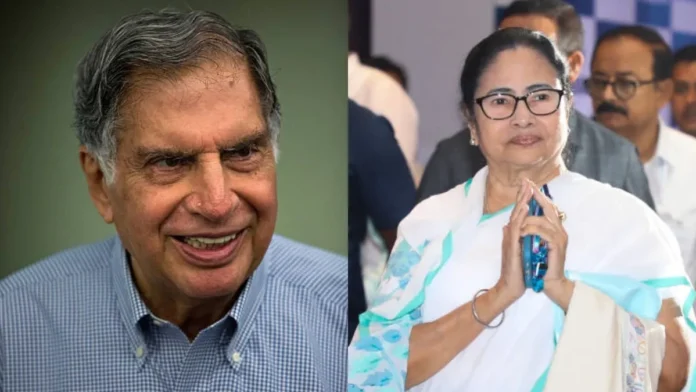In what is being viewed as a landmark moment for West Bengal’s political and industrial landscape, Chief Minister Mamata Banerjee met with Tata Sons Chairman N. Chandrasekaran, nearly 20 years after the Singur land acquisition conflict drove a wedge between the Tata Group and the state.

The meeting, held at the state secretariat, Nabanna, is being interpreted as a gesture of reconciliation and a possible opening for renewed industrial engagement between Bengal and the Tata conglomerate.
A Quick Recap: The Singur Flashpoint
Back in 2006–2008, Tata Motors began constructing a factory in Singur to manufacture the affordable Nano car, but faced massive political opposition led by Mamata Banerjee over land acquisition concerns. The agitation ultimately forced Tata to relocate to Gujarat, dealing a blow to Bengal’s industrial image and marking a key turning point in Mamata’s rise to power.
New Signals, New Possibilities
The latest meeting — while officially described as a “courtesy call” — carries heavy symbolism. It may mark the beginning of a new chapter in state-industry relations, signaling that both sides are ready to move beyond the past.
Key possibilities being speculated:
-
Tata Group exploring new investment opportunities in Bengal.
-
Cooperation in electric mobility, IT, or manufacturing sectors.
-
A broader message to investors that West Bengal is open for business.
Why This Matters Now
Several developments make this timing significant:
-
West Bengal is pushing for green industry, infrastructure growth, and IT development.
-
Tata Group is rapidly expanding in EVs, electronics, and digital sectors.
-
With political stability and fresh state policies, Bengal is aiming to position itself as an industry-friendly destination.
A Shift in Mamata’s Approach
The Chief Minister, once the face of anti-industrial agitation, is now actively seeking to attract investment. The Bengal Global Business Summit and her engagements with various business leaders in recent years reflect a strategic shift toward economic development without compromising social justice.
Two decades after a bitter and symbolic fallout, the meeting between Mamata Banerjee and the Tata Group’s top leadership may signal a quiet but powerful shift in Bengal’s industrial journey. If followed by collaborative projects or renewed investment, this could be one of the most impactful reconciliations in India’s political-industrial history.




